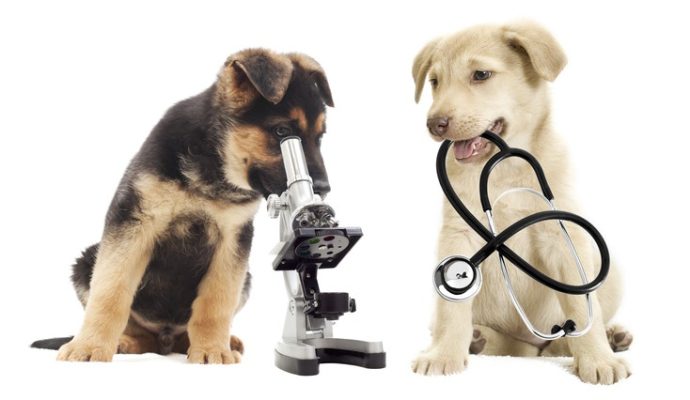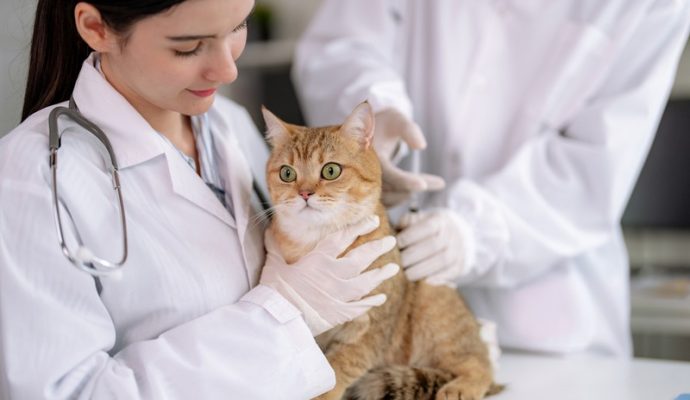When it comes to our furry friends, their health and well-being are among our top priorities. However, dogs, like humans, can suffer from various internal conditions requiring professional attention. Understanding these conditions, their symptoms, and possible treatments can significantly impact your pet’s quality of life. Let’s discuss the common internal conditions often treated in pets and explore how we can ensure they receive the best care possible.
1. Gastrointestinal Disorders
Gastrointestinal (GI) disorders in pets can range from acute problems, such as dietary indiscretion (eating something they shouldn’t have), to chronic issues like inflammatory bowel disease. Symptoms to watch for include:
-
Vomiting
-
Diarrhea
-
Loss of appetite
-
Weight loss
Treatment varies based on the underlying cause but may involve dietary changes, medication, or, in severe cases, surgery.
2. Kidney Disease
Kidney disease is prevalent in older dogs and can have profound implications if not caught early. Symptoms include:
-
Increased thirst and urination
-
Decreased appetite
-
Weight loss
-
Lethargy
Management often involves dietary modifications, fluid therapy, and various medications to support kidney function and manage the symptoms.
3. Liver Disease
The liver plays a crucial role in many bodily functions, and liver disease can be a significant health concern for dogs. Indications of liver trouble include:
-
Jaundice (yellowing of the skin and eyes)
-
Vomiting – Diarrhea
-
Swollen abdomen
Treatment options vary widely depending on the cause and may include medications, dietary changes, and, in some cases, surgery.
4. Diabetes Mellitus
Diabetes is a chronic condition that affects how the body processes blood sugar. In pets, just like in humans, it requires careful management, which includes:
-
Monitoring blood sugar levels
-
Daily insulin injections
-
Dietary management
Early diagnosis and proper management can help your pet live relatively normally despite this condition.
5. Heart Disease
Heart disease in pets can be congenital (they’re born with it) or acquired (develops over time). Symptoms of heart disease may include:
-
Coughing
-
Difficulty breathing
-
Lethargy
-
Fainting
Treatment depends on the type and severity of the disease but may include medications to improve heart function, reduce fluid buildup, and manage symptoms.
6. Endocrine Disorders
Endocrine disorders, like hypothyroidism in dogs, are common. Symptoms can include:
-
Changes in weight
-
Variations in appetite
-
Skin and coat issues
-
Energy level changes
Treatment typically involves hormone replacement therapy and routine monitoring to ensure proper dosing.
7. Pancreatitis
Pancreatitis, an inflammation of the pancreas, can be a severe condition in dogs, manifesting as an acute or chronic issue. The pancreas plays a vital role in digesting food and regulating blood sugar. Symptoms of pancreatitis may include:
-
Severe abdominal pain
-
Vomiting
-
Diarrhea
-
Loss of appetite
-
Lethargy
Depending on the severity, treatment options include fasting to rest the pancreas, IV fluids, pain relief, and anti-inflammatory medications. Chronic cases might require dietary changes and enzyme supplements.
As we look more into pet health, dog internal medicine emerges as a critical field. Specialists in this area are adept at diagnosing and treating complex diseases that affect pets’ internal systems. These veterinary professionals use sophisticated diagnostic methods to uncover the secrets behind different diseases, providing hope and recovery for our cherished pets.
The Importance of Routine Checkups
Never underestimate the power of a dog checkup. Routine veterinary visits are pivotal in detecting and managing internal conditions before they escalate. During these checkups, veterinarians can uncover subtle signs of disease, allowing for early intervention and a better prognosis. Regular screenings and blood work can catch the onset of conditions that go unnoticed until they become serious issues.
Treating Internal Conditions
When treating internal conditions in pets, the approach is multifaceted. It often includes:
-
Comprehensive Diagnostics: Blood tests, imaging studies (like X-rays and ultrasounds), and specialized screenings are fundamental in diagnosing internal conditions accurately.
-
Medication Management: Many internal diseases require ongoing medication to control symptoms and manage the condition.
-
Dietary Changes: Nutritional management is crucial in supporting pets with internal conditions optimizing their overall health and well-being.
-
Regular Monitoring: Close monitoring by a veterinarian is essential to adjust treatments as needed and ensure the best possible outcome.
-
Owner Education: It is vital to understand your pet’s condition, how to manage it at home, and when to seek veterinary help.
In some cases, medical management alone isn’t enough to tackle a pet’s health problem, and that’s where a vet surgeon steps in. Surgery can be a critical option for conditions like severe gastrointestinal blockages, tumors, or advanced heart disease. Veterinary surgeons possess the skills and technology to perform these complex procedures, offering pets a chance at a healthier, more comfortable life.
Final Thoughts
Dogs are part of our families; seeing them unwell can be incredibly stressful. However, with advancements in veterinary medicine, many internal conditions can be managed successfully, allowing our furry friends to enjoy happy, fulfilling lives. Remember, early detection through regular checkups and prompt treatment are vital in managing these health issues effectively. If you notice any changes in your pet’s behavior or health, don’t hesitate to contact your veterinarian. Together, you can work towards ensuring your pet receives the optimal care they deserve, paving the way to a healthier future.




